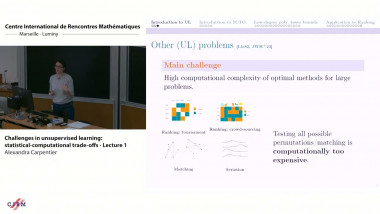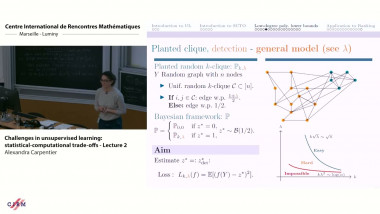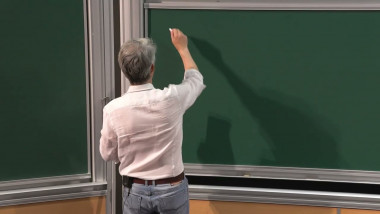Appears in collection : Schlumberger workshop - Computational and statistical trade-offs in learning
PAC-Bayesian bounds are useful tools to control the prediction risk of aggregated estimators. When dealing with the exponentially weightedaggregate (EWA), these bounds lead in some settings to the proof that the predictions are minimax-optimal. EWA is usually computed through Monte Carlo methods. However, in many practical applications, the computational cost of Monte Carlo methods is prohibitive. It is thus tempting to replace these by (faster) optimization algorithms that aim at approximating EWA: we will refer to these methods as variational Bayes (VB) methods. In this talk I will show, thanks to a PAC-Bayesian theorem, that VB approximations are well founded, in the sense that the loss incurred in terms of prevision risk is negligible in some classical settings such as linear classification, ranking... These approximations are implemented in the R package pac-vb (written by James Ridgway) that I will briefly introduce. I will especially insist on the the proof of the PAC-Bayesian theorem in order to explain how this result can be extended to other settings. Joint work with James Ridgway (Bristol) and Nicolas Chopin (ENSAE).
















